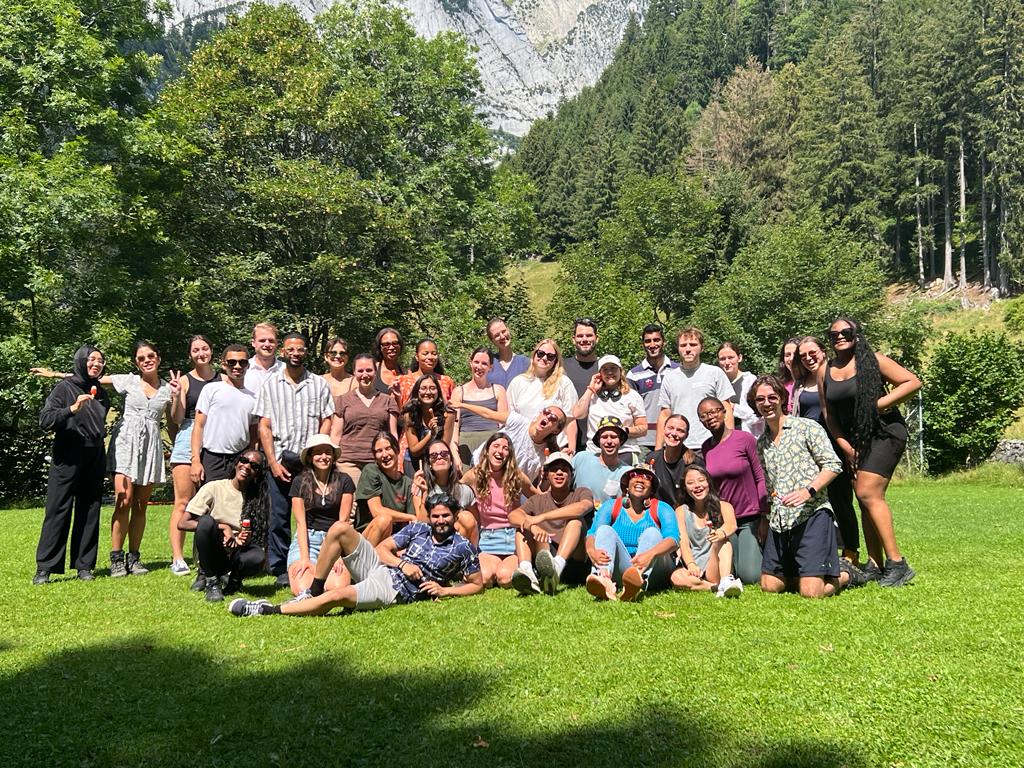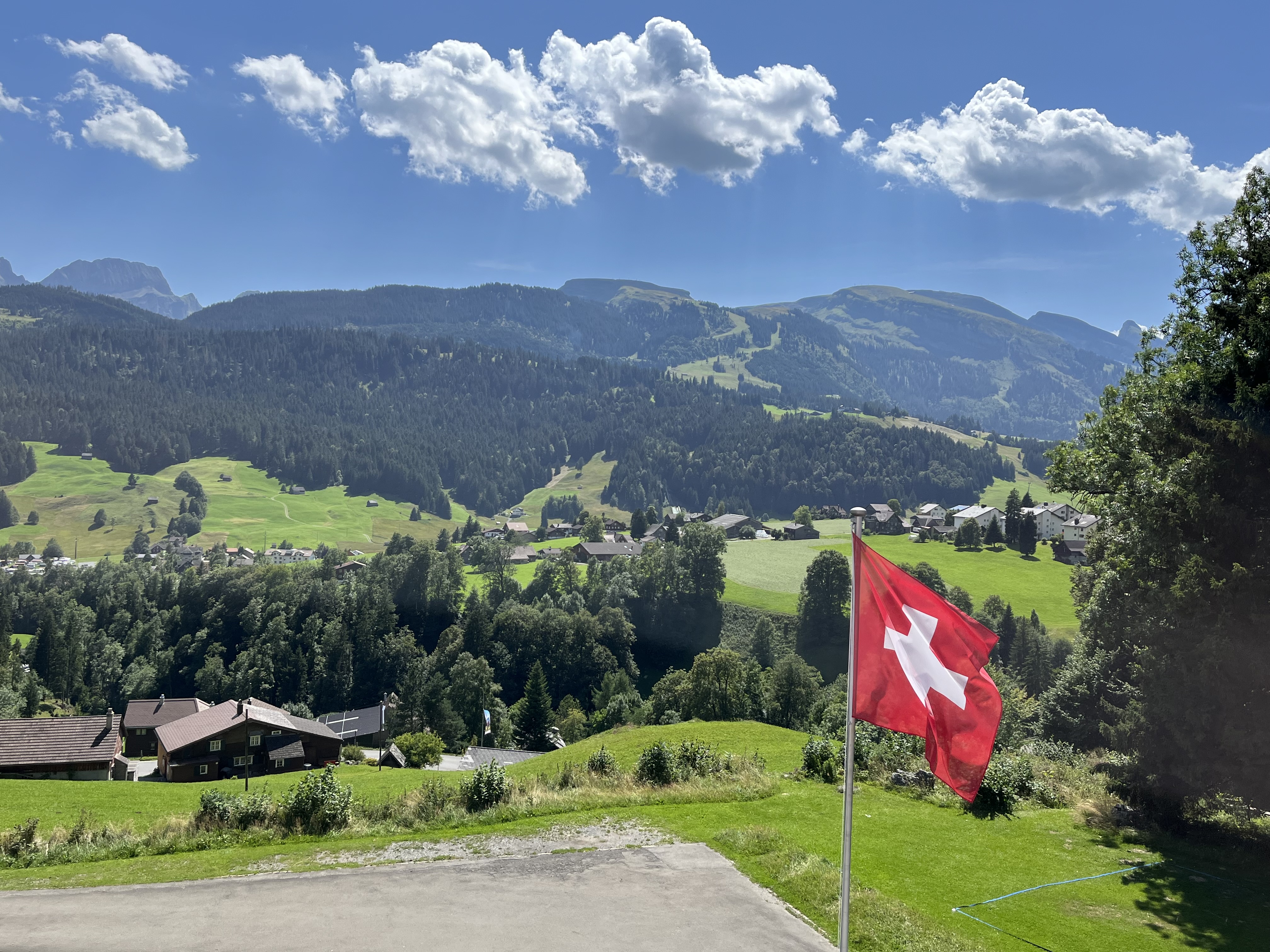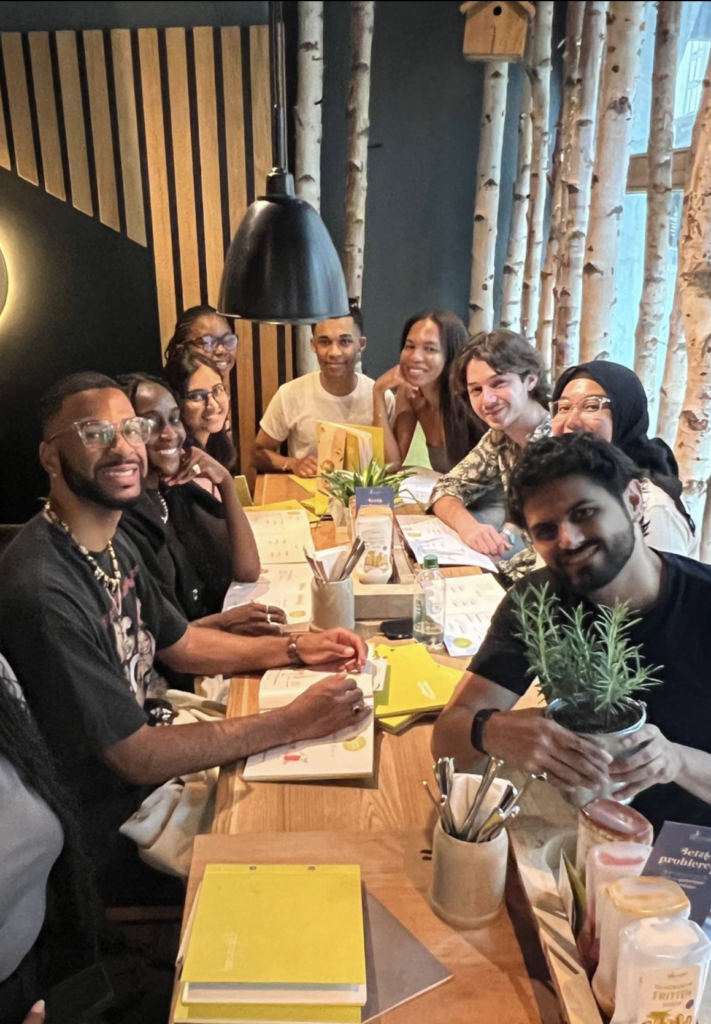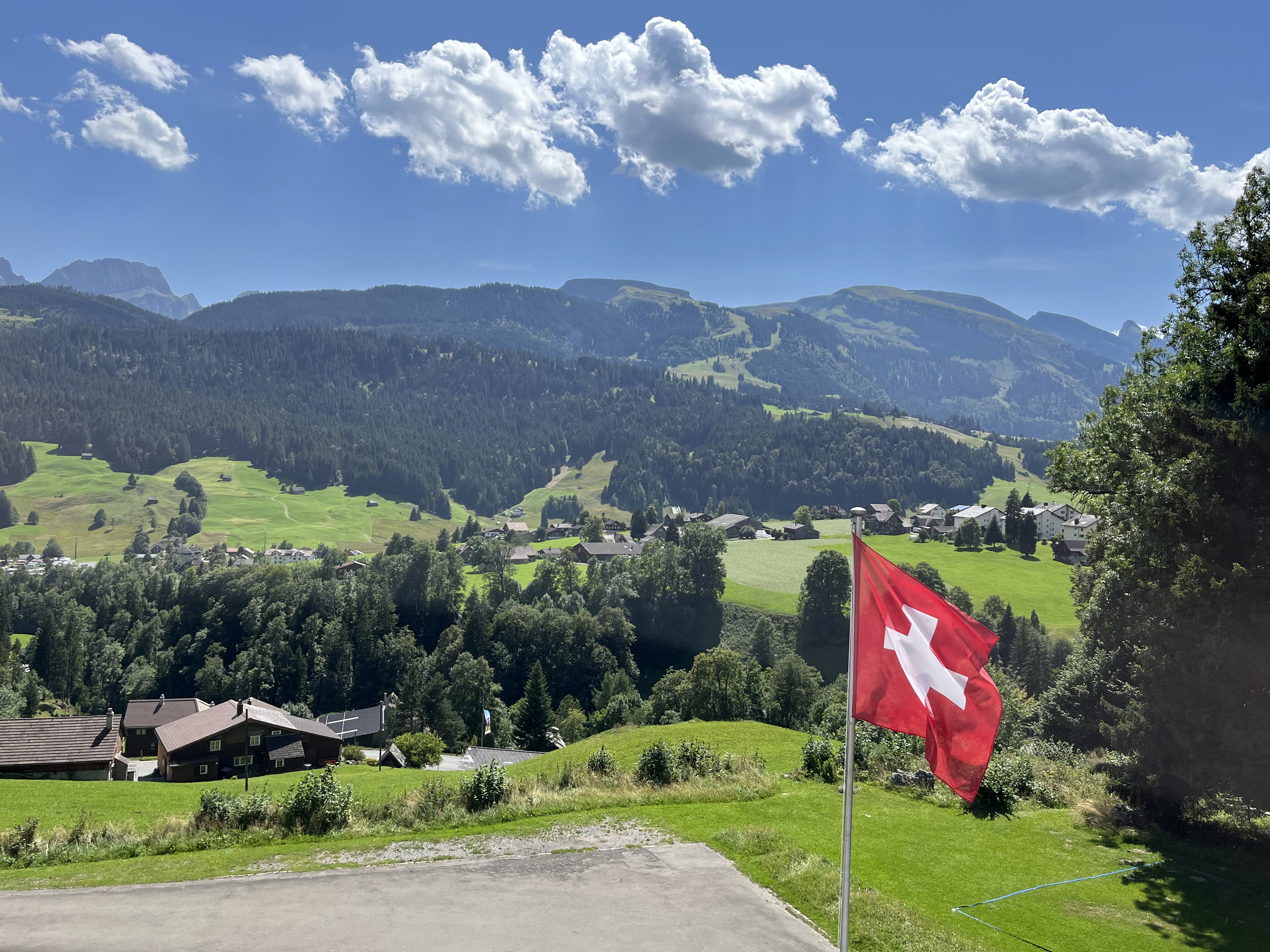Written by: Rashawn Khamari Merchant

Thrive Impact Summer School
Change often comes to those who want it. This sentence describes the foundation for the Thrive Impact Summer School program. Students and faculty from around the world came together in St. Gallen, Switzerland, to embark on a journey to become changemakers and ignite a push for climate justice in our education, work, and surrounding communities. We all left with much more than we bargained for and experienced an amount of study that will last a lifetime.
As a graduate student finishing a master’s in Climate and Society at Columbia University, climate justice is an area in which I have always wanted to participate. With a family residing in Harlem, New York, the evidence of how a lack of resources can impact a neighborhood compared to adjacent ones became quite clear throughout my life. In addition, walking amongst the campuses in Morningside, I realized the power of education in uplifting your environment. Strong academics can provide you with the tools to better yourself and others, and those tools are what I would want to bring to the place where my family calls home.
Gratefully, I have learned plenty at Columbia, but I wanted to expand my knowledge of climate change and social issues on a global scale. I sought the trip to St. Gallen University to accomplish this goal. Upon arrival, I did not expect that so many students from Europe would be looking to study through the lens of someone familiar with environmental injustices.
In my personal experience living in America, change faces friction. From the civil rights era and beyond, societal shifts have faced antagonism in favor of traditional ways. In America, marginalized groups are accustomed to this way of living and have either accepted or learned how to adapt or maneuver around the pushback to make strides.
What I took away from being immersed with a group of students not as familiar with a heterogeneous society is that previous biases against how societal structures “should be” are not as much of an obstacle to deal with. I sat with students from Switzerland, Germany, Scotland, England, and France who were open to understanding how climate change affects people of color and lower-income differently than those with the advantages of whiteness and wealth.

Rashawn Khamari Merchant/Earth Shiners Magazine
This difference is significant because to make sustainable changes, you must know what effects will occur on individual levels. The openness and willingness to understand these differences allowed us, as a group, to make tremendous progress. While I cannot say everything was smooth sailing without disagreements (we are human at the end of the day), it helped the group focus better on capstone assignments and task completion. I also appreciated the collaboration because I felt at ease enough to begin taking lessons on the ways of life in Switzerland and the surrounding countries.
The ability to focus on the abundance of trees and environmentally friendly ways of living made the trip entirely worthwhile. Never had I seen so much lush greenery in a place where people cohabitated with nature. While I did not feel like I had to fight my colleagues due to their expressed commitment to working together, I got to focus my attention elsewhere and gain my benefits from the trip.
Overall, it helps to be in a work space where you feel supported, and others want to help you. Climate justice is brutal but made easier when you are with those who want to be with you.

I encourage anyone to be where you are wanted, as it will bring you peace of mind and the strength to move forward.

Leave a Reply